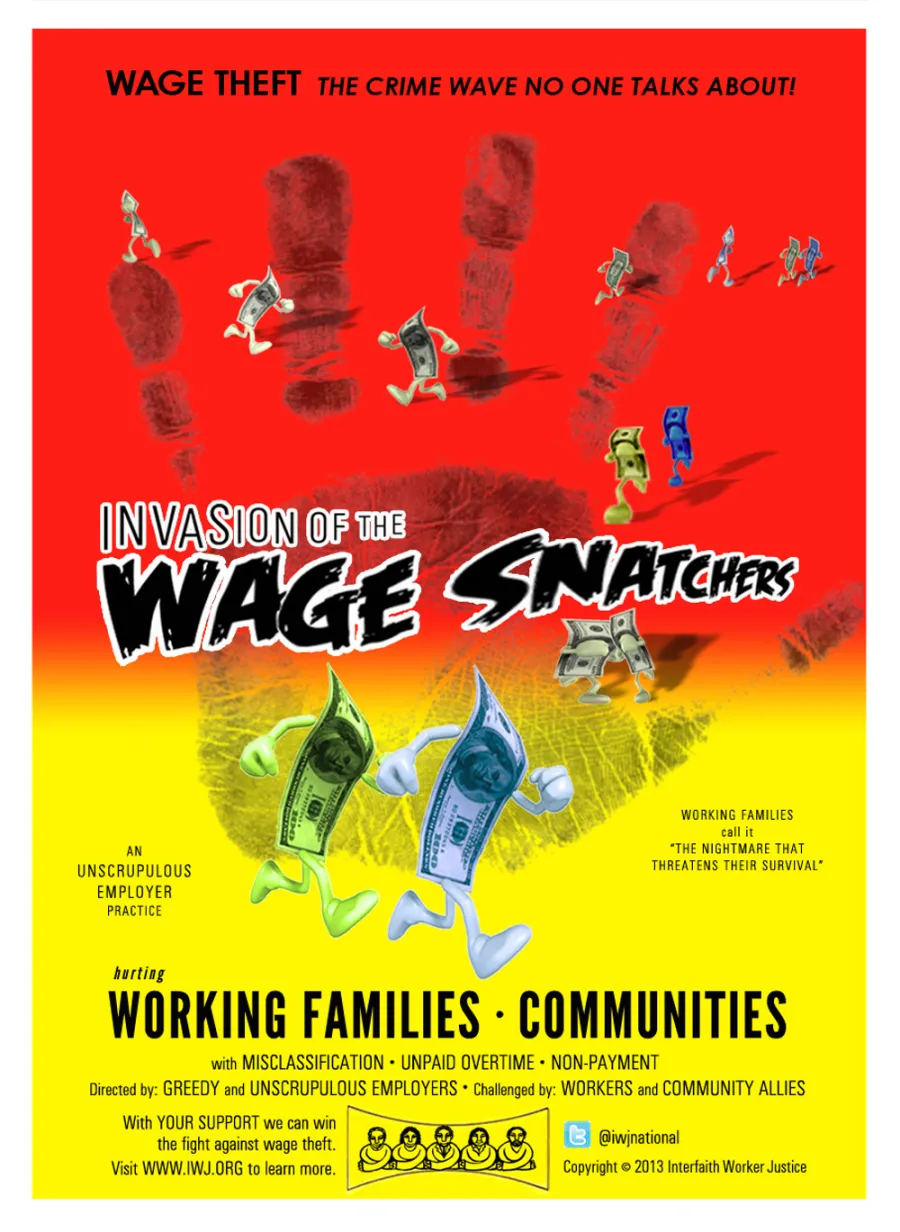The everyday nightmare of low-wage workers

An epidemic of wage theft
Who steals more money than people who rob banks, convenience stores, and gas stations combined? Employers, that's who!
According to a study released this week by the Economic Policy Institute (EPI), low-wage workers face a greater problem than their poverty-level pay - not getting paid all the wages they earn and sometimes not getting paid at all.
"The country suffers an epidemic of wage theft, as large numbers of employers violate minimum-wage, overtime, and other wage and hour laws with virtual impunity." -- Gordon Lafer, 10/31/13
Sixty-four percent of low-wage workers have some amount of pay stolen every week, including 26 percent who effectively get paid less than the minimum wage!
Seventy-five percent of low-wage workers who worked long enough hours to earn overtime have part or all of their overtime pay stolen:
"In total, the average low-wage worker loses a stunning $2,634 per year in unpaid wages, representing 15 percent of their earned income. Indeed, the amount of money stolen out of employees’ paychecks every year is far greater than the combined total stolen in all the bank robberies, gas station robberies, and convenience store robberies in the country, as shown in Figure G." -- Gordon Lafer, 10/31/13
In 2008, these actual "robber barons" stole over $185 million from their employees' paychecks:
Forced public assistance
No one can survive on $7.25 - the federal minimum wage, which is all that most fast-food companies pay their workers. As a result, 52 percent of low-wage workers have to rely on public assistance in the form of food stamps, Medicaid, and other services to close the gap. Low pay at McDonald's, Burger King, Wendy's, Subway, and other restaurants costs taxpayers $7 billion every year - $264 million in North Carolina alone.
These companies don't want to pay their workers more. They want you to pay their workers more. In fact, McDonald's actively encourages its underpaid employees who call a "McResources Help Line" to sign up for public assistance. Hear it for yourself:
Politicians making matters worse
After the tea party "wave" election of 2010, corporations used their army of lobbyists to push legislation in states aimed to lower living standards and undermine workers’ rights. The AFL-CIO compiled a list of some of their most outrageous attacks on working people, including helping employers get away with wage theft, repealing state minimum wage laws, and stripping workers of their overtime rights - among other attacks.
Read 12 Attacks On Workers’ Rights That Will Make You Kinda Mad.
Support fast food workers' fight for $15 and a union, now!
Join fast food workers, community members, elected officials, and faith leaders as we continue to push forward the fight for justice!
What: Public forum about fast food workers' fight
When: Wednesday, November 6 at 6:30 PM
Where: NC Justice Center, 224 S. Dawson St, Raleigh, NC 27601
McDonald's, Burger King, Wendy's, and other fast food restaurants are part of a $200 billion industry. Last year, McDonald's alone made $5.5 billion. Despite this, most people who work in these stores make minimum wage or slightly higher, even after having worked there for many years.
It's impossible to raise a family, put food on the table, keep a roof over your head, get adequate medical care, or maintain even a basic standard of living on these poverty wages.
Working as many hours as they can get at some of the world's largest corporations, many of the workers in these restaurants are forced to rely on public assistance to sustain themselves and their families. Rather than pay workers a living wage, the fast food industry uses the social safety net to subsidize their profits and poverty wages.
